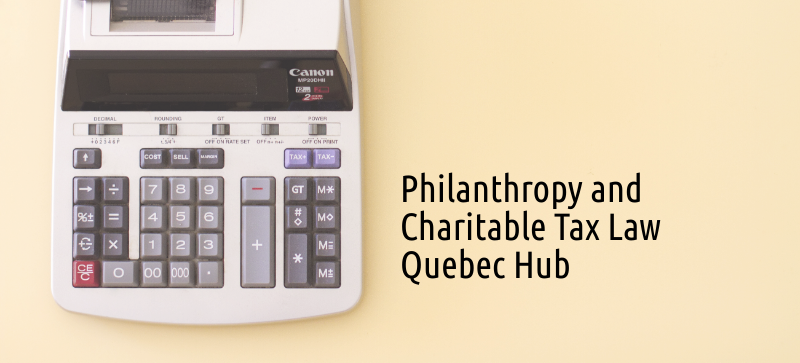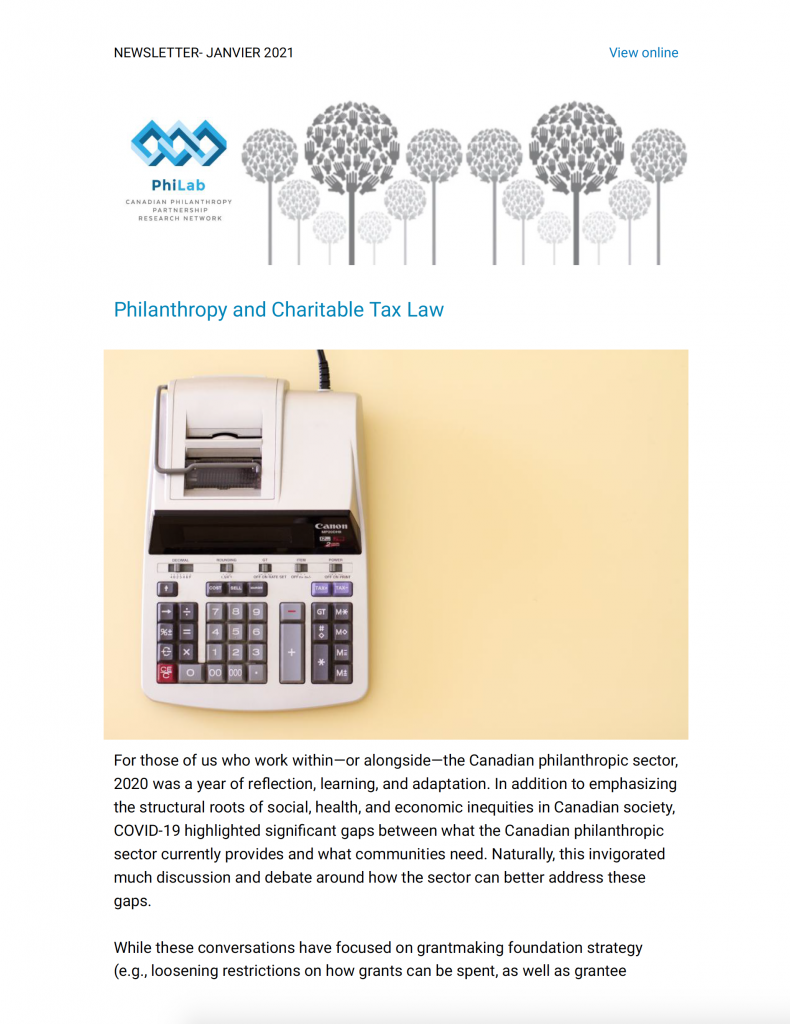For those of us who work within—or alongside—the Canadian philanthropic sector, 2020 was a year of reflection, learning, and adaptation. In addition to emphasizing the structural roots of social, health, and economic inequities in Canadian society, COVID-19 highlighted significant gaps between what the Canadian philanthropic sector currently provides and what communities need. Naturally, this invigorated much discussion and debate around how the sector can better address these gaps.
While these conversations have focused on grantmaking foundation strategy (e.g., loosening restrictions on how grants can be spent, as well as grantee reporting requirements), far less attention has been paid to the rules, regulations, and laws governing the philanthropic sector. Described in the Canadian Income Tax Act, these rules, regulations, and laws provide grantmaking foundations with generous charitable tax benefits, while also establishing a range of requirements and limitations that foundations must abide by. Simply put, these charitable tax laws determine what can and cannot be done within the sector.
Evidently, charitable tax law plays a fundamental role in linking the philanthropic sector with movements for social, economic, and ecological justice. As we enter 2021 and shift our attention toward philanthropy’s role in a just and equitable recovery, we need to give ourselves permission to reflect on, and reimagine, all aspects of the philanthropic sector, including its legal framework. PhiLab Quebec’s Special Edition on “Philanthropy and Charitable Tax Law,” aims to stimulate discussion around the role of charitable tax in the philanthropic sector’s future, as well as broader questions of adaptation to a post-COVID-19 world.
Enjoy your reading!
- Editorial: Charitable Tax Law and a Fair and Just COVID-19 Recovery, by Adam Saifer, Quebec Hub Supervisor
- Towards a reform in the legal framework regulating the political activities of registered charities – Four reactions from the philanthropic sector on the abolition of the 10% limitation, by David Grant-Poitras and Diane Alalouf-Hall, Quebec Hub
- Vidéo: La modernisation de la loi de l’impôt pour les organismes de bienfaisance, by Hilary Pearson, Quebec Hub
- Summary Report: 2020 Geneva International Conference “Taxation and Philanthropy”, by François Brouard, Ontario Hub
- Philanthropie et résistance climatique: Entretien avec Pascal Bergeron, président de la Fondation Coule pas chez nous, by David Grant-Poitras, Quebec Hub
- Charitable Foundations and Advocacy: Reimagining the Doctrine of Political Purposes, by Adam Parachin, Ontario Hub
- COVID-19 and the political activities of Canadian charities, by Andrea Kovacs Sykes, Ontario Hub
- Upcoming webinar: Democracy, civil society, and digital technology February 17th-18th, 2021, by the Stanford Social Innovation Review
- Tax incentives in favour of public utility in Switzerland: an incomplete debate?, by Alexandre Lambelet
- Charities Now Welcome in The Political Arena: What This Means for the Charitable Sector of Today and Tomorrow, by The Philanthropist, David Grant-Poitras and Diane Alalouf-Hall
- Book Review: Debates in Charity Law, by The Philanthropist
- Plaidoyer pour une modernisation des règles, by La Presse
- Catalyst for Change: A Roadmap to a Stronger Charitable Sector, by the Senate of Canada
Consult our January 2021 Newsletter for the Special Edition: Philanthropy and Charitable Law



